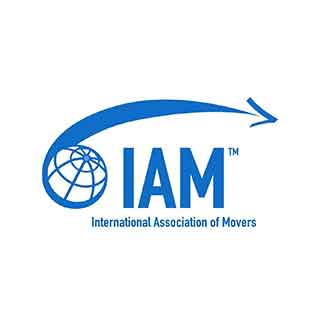Latest news from Eurogroup
Everything you need to Know about Tax and Shipping your Household Goods
12th May 2023
Whether you’re transporting your belongings via air, sea or road – your goods will still need to clear through customs, posing the likelihood of being taxed. Every country has different entry requirements, including what qualifies as duty or tax-free. We recommend using a reputable BAR (British Association of Movers) member who are well versed in door-to-door services overseas. Their experience and knowledge will help you avoid any fines, duties or taxes that may occur otherwise, ensuring a smooth and stress-free shipping process.
What shipping information do governments require?
Although some countries’ requirements may vary, it is standard that your belongs have valid export and import documentation. Common export, or import, documentation usually consists of:
- Transport Documents
- Export Compliance Documents
- Export Licenses
- Destination Control Statement
In addition to the above, an accurate inventory list of all the items you are shipping – most countries will also require the inventory to be in their language. If you travel to a location with restricted items, these must be clearly stated and require their own inventory; It is important to declare all items properly to avoid fees, delays and legalities. You cannot pass into any country with banned items.
What personal paperwork will you need to provide?
As well as your shipping documentation, you must provide several personal documents to ship belongings because your export is linked to your visa. Documentation required from most countries is as follows:
- passport
- Proof of residence in the new destination country
- Valid Visa
- Proof of employment
These paperworks are the responsibility of the individual travelling, though most shipping companies offer a service that provides support and advice to have a stress-free move.
What are the duty-free requirements?
All personal effects you are shipping get declared to customs, meaning that everything is eligible to be taxed – although most countries do have a criterion to allow for duty-free shipping. The following list varies slightly depending on whether you are exporting to Europe, America, or Australia, but all determine the requirements to qualify for duty-free.
- You must have been in possession of said items for more than six months. New items under 6-12 months old are subject to duty and tax.
- The import of household goods into the new location must happen within 12 months of the change of residence.
- The removed goods must be used for the same purpose as in the previous location.
- The household goods will stay in possession of the importer for 12 months – you cannot resell them.
There are, however, some items that will not qualify for duty-free importation. Most destinations have the same list of not eligible items for duty-free; alcohol and tobacco. These restricted items must have their own inventory to make the customs process easier for import and export.
What does Eurogroup help you with?
If you select the door-to-door service, we will pack your items for you and remove them from your property, ship them, and unpack them at the other end; this ensures everything will be clear when creating an inventory, as our trained specialists will be familiar with the process. With this service, all paperwork for export and import is done before items have even left the country. This may seem time-consuming, but it guarantees problem-free shipping. Additionally, there are less likely to be surprises, delays or charges at the other end, since we are the ones that have completed the paperwork! We handle the export, and our destination partners operate the import – this way, you always have a point of contact to guide you through the process.
If you decide to self-pack your items, Eurogroup can still advise you on regulations and paperwork and provide you with guides for each country’s laws. However, If paperwork is not filled out correctly or mistakes are made, you risk facing charges, fines and even delayed shipping.
Conclusion
Every item that gets shipped must be declared at customs – therefore, no one can avoid this process. An accurate inventory list, shipping documents, and personal information must support all items. Though it seems confusing at first with various regulations for different countries, leaving the process in the hands of professionals can make your move more time and money efficient.
Ready to move abroad?
If you’re ready to make your move, request a call-back today to get a quote on your removal.





